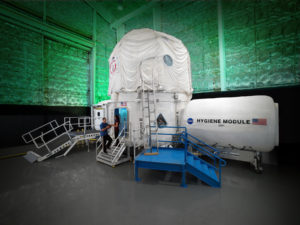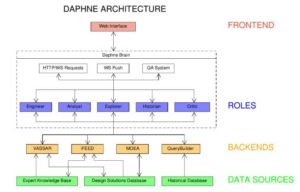
During long duration space missions, communication delays and other unknown factors will limit the ground support availability for the crew to mitigate in-flight anomalies. An autonomous virtual assistant capable of detecting such anomalies will be essential to alert the crew and treat the anomalies in a timely manner. This will not only ensure mission success and crew safety, but will also increase overall human performance, decrease the cognitive workload, increase situational awareness and help humans gain trust interacting with autonomous systems.

The Bioastronautics and Human Performance (BHP) lab is working in collaboration with Systems Engineering Architecture
and Knowledge (SEAK) lab to develop a smart virtual assistant Daphne-AT and to measure its effects on human performance, cognitive workload, situational awareness, and trust. Daphne-AT- an autonomous virtual assistant will provide support for various aspects of anomaly treatment. The baseline aspects include detecting and diagnosing the
anomaly, as well as recommending a course of action. Daphne-AT’s advanced skills include the capability to take initiative in the dialogue with the user, and the ability to provide explanations for its recommendations and actions. The BHP lab will design and conduct human-rated experiments to measure the impact of using a virtual assistant. A full-scale model will be deployed in a high-fidelity NASA analog to test the advanced functionality of the virtual assistant and its impact on crew performance.
